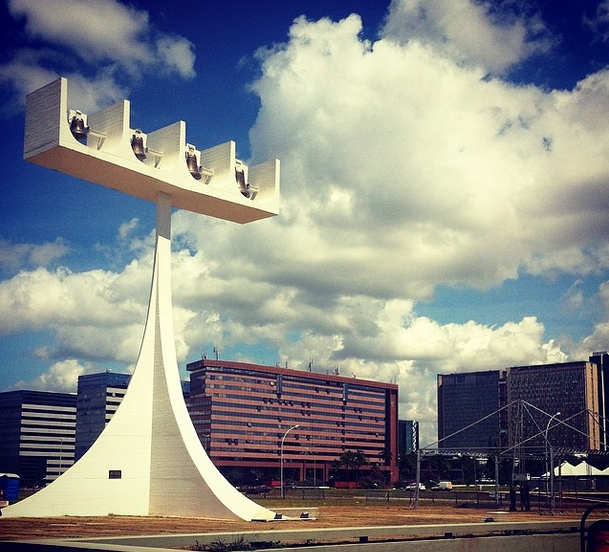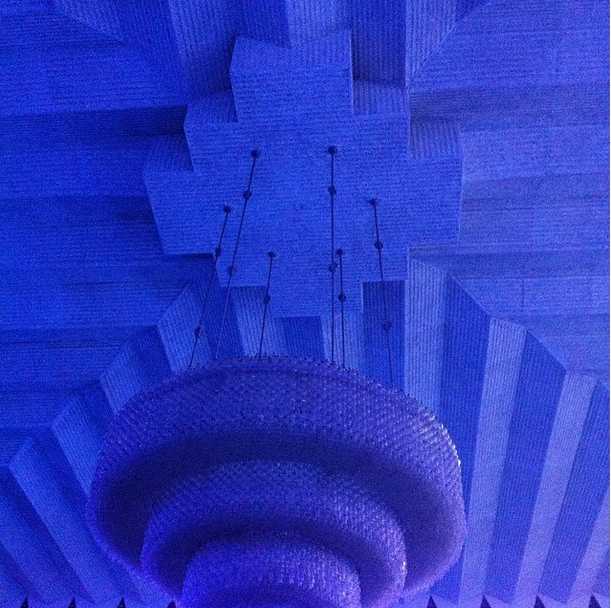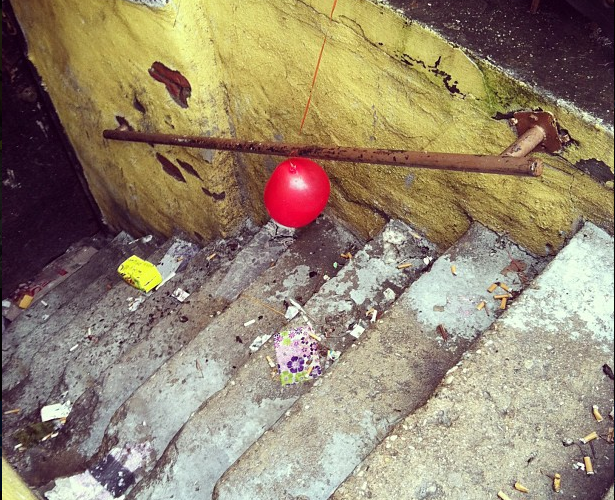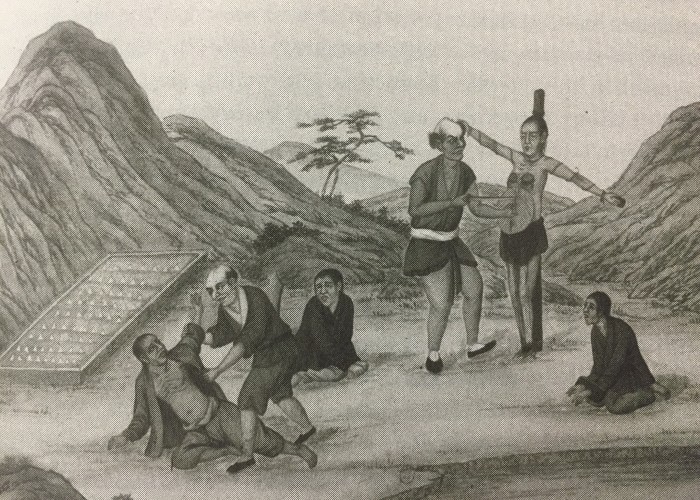The Skies of Brasilia: an interview with João Almino
Jonathan Blitzer
Jonathan Blitzer: You’re originally from northern Brazil—Mossoró—but your novels bring you to the geographic heart of the country: Brasilia. How did you wind up there, exactly?
João Almino: I did not want to revisit the Northeastern regionalist literature that I so admired, and I wanted to depart from the prevailing Brazilian literature of the time. Brasilia represented the new, was somehow an empty space with no literary tradition, and it therefore gave me more freedom to create. I knew the city, since I had lived there for a few months in 1970 and then again later, on three different occasions. I should also add that I could easily bring the Northeast to Brasilia, a city of immigrants.
JB: What interests you most about Brasilia?
JA: First of all, the city as a symbol or a myth that, as a project, accompanied the whole history of independent Brazil. Also the city as a metaphor for the modern world—with its promises and its frustrations. The tension between the futuristic project, the utopia, and the current urban chaos. The contrast between the rational elements of the project, still visible in the so-called Pilot Plan, and the spontaneous, irrational developments which surround it in the satellite cities and mystic communities. Also, the city as a crossroads of several Brazils, and its transcultural nature, through which I can see the country as whole.
JB: Do you have any particular memories of Brasilia growing up? You were just a boy when it was being developed… and yet I imagine you still must have felt its newness somehow…
JA: I didn´t live in Brasilia when I was growing up, but I have childhood memories of the city, reading about it in newspapers and magazines, listening to stories of family members who had visited it during its construction and even following on the radio all the events of its inauguration. The construction of Brasilia attracted the attention not only of Brazilians from all corners, but also of foreigners who were fascinated by the boldness of its project.
JB: When you set out to write Ideas on Where to Spend the End of the World, did you have any sense that five other novels about Brasilia would follow?
JA: In this first novel, each chapter has a central character. I thought at first that each one of those characters deserved a novel of his or her own. Although some of these characters were brought in to future books, already when I wrote my second novel it was clear to me that not all of them required further development. Minor characters sometimes took precedence over them, and new characters kept arriving.
JB: One character, in Five Seasons of Love, says: “My youth is lost. The Brasilia of my dream of the future is dead. I recognize myself in the facades of its prematurely old buildings.” This novel and the one that came after it, The Book of Emotions, are nostalgic, even melancholic books. But these feelings stand in proportion to a sense of possibility and belief in regeneration, too. This nostalgia doesn’t quite seem hunkered down in the past so much as attuned to the future. In Ana’s case, her regrets about the past are almost less poignant than that she should feel her ‘dream of the future’ dissolving away.
JA: One interesting aspect of Brasilia is that it represents the modern that can already be viewed as the past. The ruins of the modern are present there. Brasilia radicalizes a trait of Brazil itself, being a city of the future and yet with no past, so to speak. There is little memory and much hope. But of course reality can demonstrate that the new has its history, its memory; nothing can be created from zero, and utopia, instead of signifying an always unattainable future, can be redefined as a way of reorganizing the present. In The Five Seasons of Love, Ana attempts to forget so that she can be born again. Moving in the opposite direction, in The Book of Emotions, Cadu attempts to live again, through memory. Both are in a sense failed attempts, but they have meaningful results. The act of trying to erase the past as well as that of trying to recover it leave their own paths, creating a new reality: the stories that actually matter.
JB: Ana’s thinking reminds me of a line from the Argentine novelist Juan José Saer in a book called El entenado. An old man looks back on his life, and at one point says, “Y si ahora que soy un viejo paso mis días en las ciudades, es porque en ellas la vida es horizontal, porque las ciudades disimulan el cielo.” The Brasilia of your books might be the opposite. As the city towers upwards, Ana feels her life becoming more horizontal, even flat-lining a bit.
JA: Brasilia, which seems to be only sky, can be rediscovered through real lives and real drama. As Ana looks closer to her surroundings, she will find unexpected dimensions of her life that will remove her from the inertia she was in.
JB: Then there’s Cadu, from The Book of Emotions. He is a former photographer, a philanderer and bon vivant who lives his final years alone and blind. And yet this is where his story begins in The Book of Emotions. It brings to mind someone like Machado de Assis’s Brás Cubas: the backwards glance, the self-conscious piecing-together of the memoir. How present was Machado de Assis for you while writing this novel? Borges is also ever present. Could you speak to where you drew inspiration for this novel?
JA: Cadu is a photographer in my first novel. After publishing my third novel, The Five Seasons of Love, in which the narrator, in the first person, is a woman who had an affair with Cadu, I thought the time had come to write a novel from his perspective. I thought of an album of photographs that had special meaning to the character and whose description could in itself create a plot. Making Cadu a blind man who recreates his photographs by memory, he would be the kind of narrator I needed to convey to the reader these images exclusively through words. I also added a layer of reflection on photography. Long ago I had had the idea of writing an essay on photography, which I never wrote. So, fragments of this possible essay were dispersed in some of Cadu’s thoughts and observations. As for Machado and Borges, I do not try to imitate them, but I agree that some inspiration for aspects or passages of this novel may have come from them: Borges, after all, was blind, and the perspective of an old man keeping a distance from himself to better see his past is present in his short stories. Cadu may be seen as a Brás Cubas, but the structure of the book, through a diary, could more appropriately be compared to Aires´ Memoir, Machado´s latest novel, as one Brazilian critic has remarked.
JB: Where did you start with The Book of Emotions—in a mechanical sense? The book is basically a weaving together of two separate diaries, kept by Cadu, at two different moments in his life. How entwined were these two accounts when you began?
JA: The diary refers to the description of and comments on the photographs of the so- called Book of Emotions, a sort of sentimental album. So I had to weave the diary and the album together. The photographs were taken many years ago, but what the reader reads is what is in the mind of the narrator as he now remembers each one of them. While the narrator composes, with photographs, this book of his past, he lives his everyday life, which is the object of the diary.
JB: What was the “present tense” in which you were operating as you shuttled back and forth between these two moments in Cadu’s life?
JA: In fact I am always dealing with the present. The imaginary future in which the photographer looks at his past and composes his diary serves the purpose of making the past that is narrated coincide with our present.
JB: Who are the authors who have most inspired you?
JA: I don’t know if I have learned their lessons, but the Brazilian writers I mostly admire are Machado de Assis, Graciliano Ramos and Clarice Lispector. Besides them and to keep the list short, I should mention Borges, Proust and Dostoevsky.
JB: Your training is as a philosopher—is this an identity you keep separate from your life as a novelist?
JA: Yes. The processes are very different and in my case they have not coincided in time. Although I was trying to write fiction early on, I published first some essays in philosophy. When I started publishing my fiction writing, I abandoned the writing on philosophy—with the exception of a few essays—although not entirely the reading of philosophy. I never tried to transfer my philosophical enquiries into the novels. Nevertheless, indirectly some philosophical training may have inspired ideas, sometimes ironically, in some of my characters. For example, in The Five Seasons of Love, Ana develops a so-called philosophy of instantaneism. This philosophy is to some of the current real time concepts as the philosophy of humanitism proposed by Machado´s character Quincas Borba is to the 19th century evolutionary ideas. It uses some valid premises to reach some absurd conclusions. In the case of instantaneism, the concept itself needs to be redefined almost at every new instant.
JB: Are you working on anything right now?
JA: After the novels you have mentioned, I published Cidade Livre (Free City), and right now I’m working on another novel. I don´t like to speak about the work in progress. What I can say is that, in this novel, my characters leave Brasilia for a while and even spend some time in Spain.
* *
* *
Excerpt from the novel Free City, translated by Rhett McNeil (Dalkey Archive Press, 2013)
My present-day insomnia is an extension of those hours when, in the darkness of night, I heard sounds of drunkards out in the street, my dog Typhoon barking, macaws that lived out behind the house or a lone owl, and I’d open my eyes to the kaleidoscope of grays and blacks that turned into monsters on the walls.
To give the story some life, all I had to do was transport myself back to a day from my childhood, imagine myself in the middle of an avenue in the Free City, and then I could see my aunts sporting fine figures and scowls, Valdivino seated at a table transcribing letters, Dad talking with someone in the doorway of a bar, a little girl with braids and dark eyes riding a bicycle, Typhoon following behind me, and I could see the colors of the shops, the wooden buildings, bulky black cars parked on the side of the street, their white-wall tires exposed, and then the smell of gasoline would emerge, the smell of oil, the smell of trash heaps and horse manure, and the stories of crimes, sins, despair, and grandiose futures would appear on an enormous, colorful screen.
I look out upon a day from my childhood and see three male characters conversing in front of our house, where Aunt Francisca has just set out some chairs, and I don’t even need to describe to you the wooden house with no sidewalk, identical to all the others that you see in photographs from that era, in front of which, as I was saying, the three characters were having silent conversations, communicating phrases in gestures, uttering words that I can’t hear, or, if I do hear them, that I can’t understand, and which, if I understand them, don’t interest me, one of them with an oval face, white and freshly shaved, a trace of displeasure in it, a sharp, playful look in his eyes, the expression of a very successful man, one who had accumulated many experiences throughout his life. Typhoon is sitting beside him, listening to his conversations with ears perked up. This is Dad.
The second one, whose hands hide his hat as he doffs it, has a muscular, well-formed body, a strong, straightforward look on his sunburned face, a well-trimmed moustache, and anyone who looked upon him would envy his felicitous appearance. This is Roberto, back when it wasn’t yet clear whether he’d be the boyfriend of Aunt Francisca or Aunt Matilde.
The third one, of an unpolished simplicity, with a hat that’s much too big for his small head, is a talker, looks intelligent, and is the only one with spurs on his boots, having arrived on the back of a mule, but if he garners my attention, it’s because of his fragility. When he takes his hands out of his pockets, he gesticulates endlessly, swaying forward and back on his chicken legs, and gives the general impression that he’d be blown away if the wind were to catch him. The other two look him up and down when they pass by him. From this description, you will have already guessed it: This is Valdivino.
What feelings of longing are these that emerge from a happiness invented by memory? No, neither my mistrust nor doubts are of recent vintage, they were already present back when I was a boy, I just had to wait a few years to be able to perceive them. My desires have changed, my aspirations are different, I was successful once, before losing almost everything, but the hours pass just the same on different clocks, and the sun, facing the construction projects that filled the landscape, paints the morning with the same colors and conceals them, as always, at dusk. You, my lone, faithful follower on this blog, are right, why disturb what is quiet and forgotten?
On that first night when I met with Dad to clear up my doubts, he denied that he murdered Valdivino, it was a delicate thing for me to resurrect those old suspicions, and he told me that it was best to believe in the version told by the prophetess of the Garden of Salvation, Íris Quelemém, according to which Valdivino hadn’t died at all, and perhaps never would, he had always been an insomniac and a sleepwalker, and was still walking around aimlessly, walking day and night through the forest in search of Z, the lost city. Leave it be, João, those waters have passed us by.
Sometimes, as I was wrapped up in a daydream, our life in the Free City would invade my memory, a life made up of places and scenes, as well as Dad’s stories, and those of my aunts and the other characters around us—and of those others, mainly Valdivino’s—the things, facts, and people from my childhood arranged as if they were in an enormous family photograph, or on a chessboard in the distance where the distinctions between the pieces had dissolved into a uniformity imposed by time. Only Dad could, for the first time, reorganize the pieces on that board, and liberate my memory from that immobility. Fact is, he’s not dead, nobody killed him, Dad replied, he’s traveling or merely asleep, like Íris said.
* *
* *
Images: Pola Oloixarac
[ + bar ]
Joshua Edwards
CATHAY
Wrongheaded and obsequious on vacation, unnerved by new surroundings, I miss the bright feeling of belonging and the familiar patterns of my country— its virginity and schizophrenia, my several stolen bicycles.
*... Read More »
The Marquise was Never Content to Stay at Home
Sergio Pitol translated by George Henson
For Margo Glantz
A feeling of disaster is haunting the world. The novel records it and, in doing so, is resplendent. The more rotten... Read More »
The Forgotten Sense (fragment)
Pablo Maurette translated by Andrea Rosenberg
In the winter of 1904–1905, in Beijing, a bodyguard named Fuzhuli was accused of killing his master, a Mongol prince, with... Read More »
Three Snapshots on the Way Down
Edgardo Cozarinsky translated by the author
1. “Il vecchio non trova pace”
What’s that you’re saying, I am about to snap at the barman with my coldest voice... Read More »









 sending...
sending...